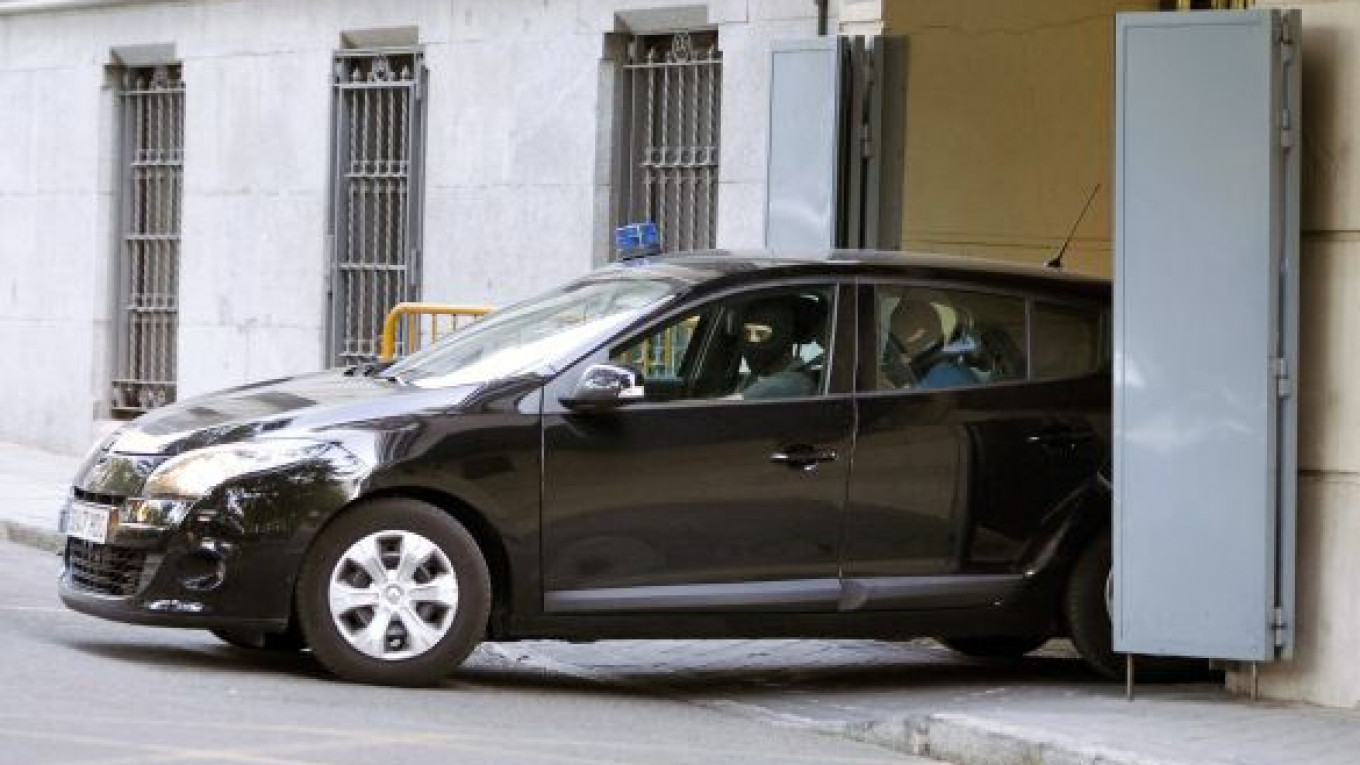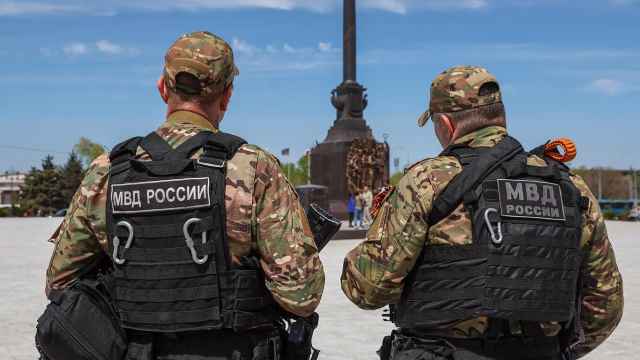The history of terror plots is filled with unusual schemes, from an underwear bomber to model planes filled with explosives, showing how would-be attackers are constantly hatching ideas to catch authorities by surprise.
Now questions are being raised about whether two Chechens held on terror charges in Spain were planning to launch airborne attacks with paragliders.
The two Chechens took paragliding lessons this year in a southern Spanish region renowned for the sport, authorities said over the weekend. A Turkish engineer also under arrest paid for the lessons.
Spain's Interior Ministry declined comment on whether investigators believe Eldar Magomedov and Mohamed Ankari Adamov were using the paragliding lessons to train for an attack.
But Spanish television station TVE and other media outlets say the suspects had planned to drop explosives on a shopping mall in the British colony of Gibraltar during the London Olympics.
Paragliding pilots said in interviews that the Chechens probably wouldn't have raised red flags at paragliding schools because it's easy to sign up for lessons.
There are no criminal background checks for would-be paragliders.
Students generally only have to be physically fit and able to speak English or the language of the country where the courses are taught.
Europe already has at least 100,000 licensed paragliders, many using gliders that fold up and fit into car trunks.
No attacks have been carried out using paragliders, experts said.
The chances of success of such a plot would be severely limited by the difficulty handling the gliders over cities, terrorism and paragliding experts said.
However, paragliding did feature in one recent stunt by an environmentalist that must have given chills to authorities.
The activist was arrested in May after dropping a billowing smoke bomb onto the roof of a French nuclear reactor.
Video footage captured the activist on a motorized paraglider after he dropped the smoke bomb. He circled the reactor before making a wobbly descent to the ground.
His glider's parachutelike wing was emblazoned with the name of the environmental advocacy organization Greenpeace.
Paragliding was banned in and around New Delhi during the 2010 Commonwealth Games "to provide security against any sort of terror attacks," said police spokesman Rajan Bhagat.
And authorities in Denmark banned paragliders from flying above Copenhagen in 2009, when the International Olympic Committee met to pick the winner of the 2016 Summer Games.
They prevented the use of the motorized gliders the pilots planned to use because of worries the aircraft might be able to land inside the security perimeter of an opening event attended by U.S. first lady Michele Obama and the presidents of Brazil and Russia, said Rasmus Rohlff, general secretary of the European Hangliding and Paragliding Union.
"I asked if we could fly to honor them," Rohlff said. "The Danish police said no, that they were concerned that we would be able to land in a small area, leave something there and fly off."
At the London Olympics, all aircraft, including hot air balloons and paragliders, need prior approval from authorities to fly from, into or within the restricted zones of central London and the Olympic park, according to Britain's air traffic control agency, NATS.
The restrictions are monitored by Britain's Defense Ministry, which can scramble military jets or helicopters to intercept any aircraft that enters the no-fly zone without permission.
Spanish officials haven't said where the Chechens took their lessons, but the Turkish engineer was living just outside Gibraltar in the city of La Linea in Spain's Andalusia region.
Andalusia is a popular paragliding area for tourists from across Europe, said Daniel Blanco of the Andalucia Federation of Air Sports.
"Any tourist can do paragliding, and it's an important source of income here," he said. "To learn, they'd just have to speak Spanish or English, and buying a paraglider is easier than buying a car or a motorcycle."
Licenses to fly are granted by paragliding federations in each European country under rules set by civil aviation authorities, with no criminal background checks, said Eugenio de Almeida, president of Portugal's Free-Flight Federation, which covers paragliding.
Learners must provide an ID, an address and a medical certificate, then just a photo to go with the license.
They spend about 40 hours in classes and at least 40 hours flying with an instructor to get a basic license.
Taking off with as much as 80 kilograms of explosives would be possible on a paraglider designed for a pilot and a passenger, de Almeida said.
He characterized the idea of terrorist paragliders as "not an unspoken issue" but "not a topic that's on our minds."
Experts said the Spain allegation shows that attacks by paragliding terrorists shouldn't be ruled out.
The Turkish suspect had also flown remote-controlled model airplanes, Spanish authorities said.
"It sounds like an innovative terrorist tactic to be taken seriously," said terror expert Fernando Reinares of Madrid's Elcano Royal Institute. "Suicide bombers using paragliders may not provoke devastating, catastrophic attacks, but [they] can still cause an important number of fatalities in crowded places and generate widespread panic."
(AP, MT)
A Message from The Moscow Times:
Dear readers,
We are facing unprecedented challenges. Russia's Prosecutor General's Office has designated The Moscow Times as an "undesirable" organization, criminalizing our work and putting our staff at risk of prosecution. This follows our earlier unjust labeling as a "foreign agent."
These actions are direct attempts to silence independent journalism in Russia. The authorities claim our work "discredits the decisions of the Russian leadership." We see things differently: we strive to provide accurate, unbiased reporting on Russia.
We, the journalists of The Moscow Times, refuse to be silenced. But to continue our work, we need your help.
Your support, no matter how small, makes a world of difference. If you can, please support us monthly starting from just $2. It's quick to set up, and every contribution makes a significant impact.
By supporting The Moscow Times, you're defending open, independent journalism in the face of repression. Thank you for standing with us.
Remind me later.






